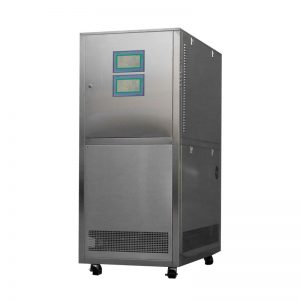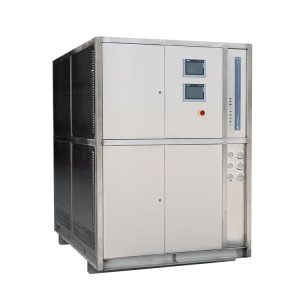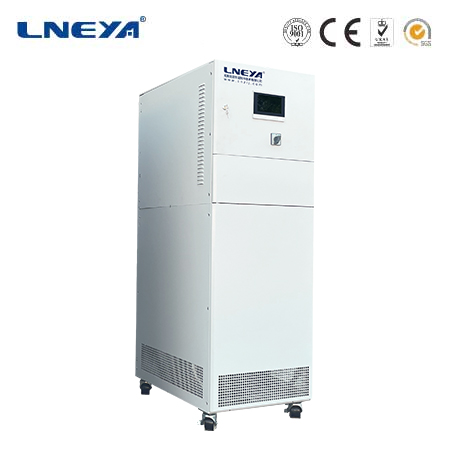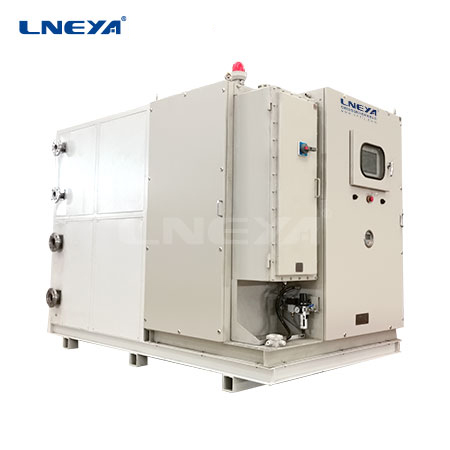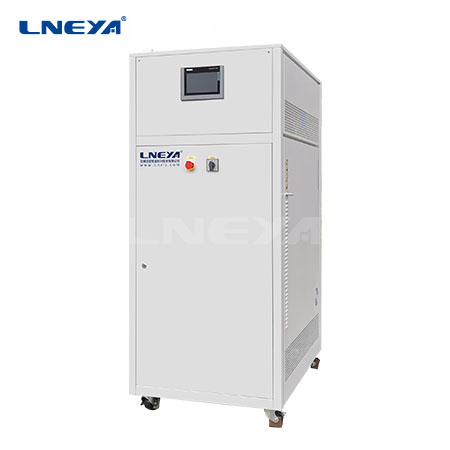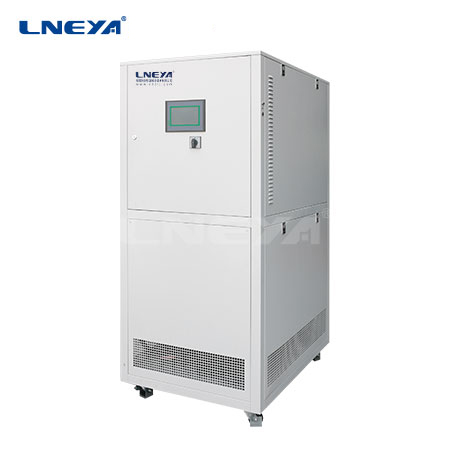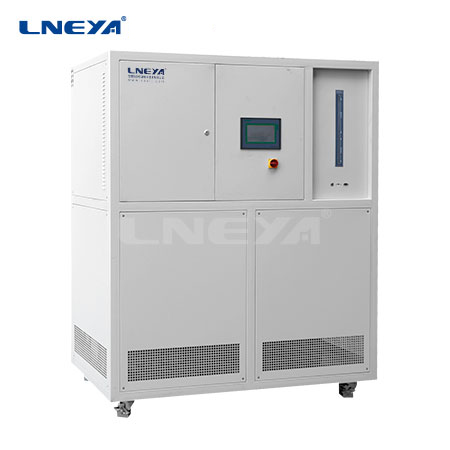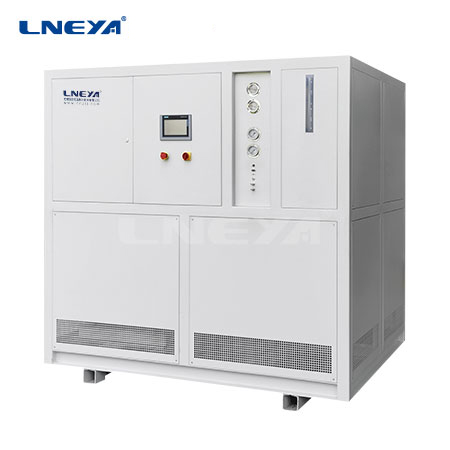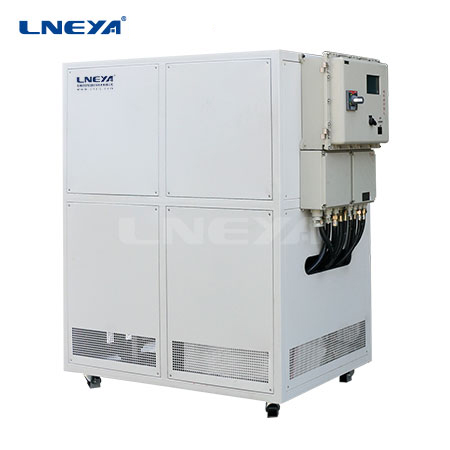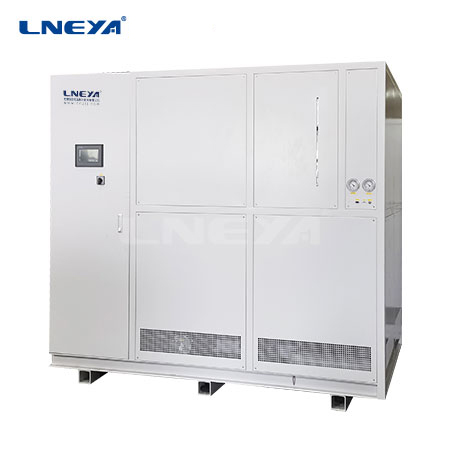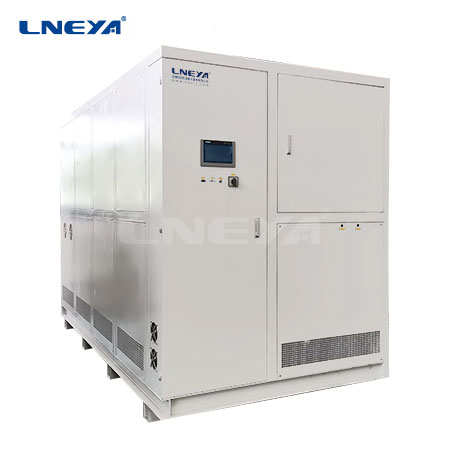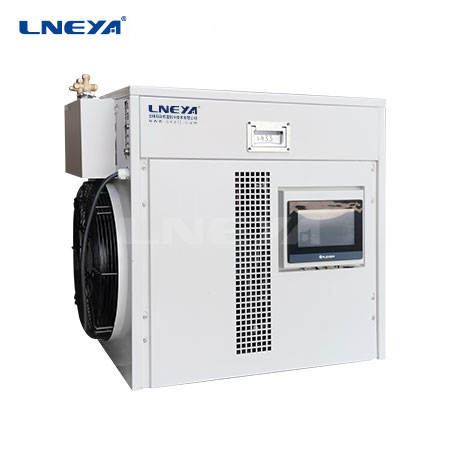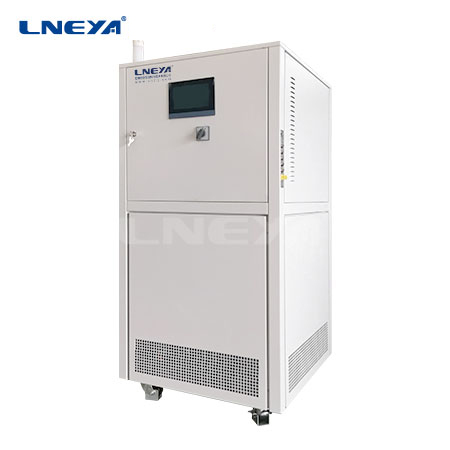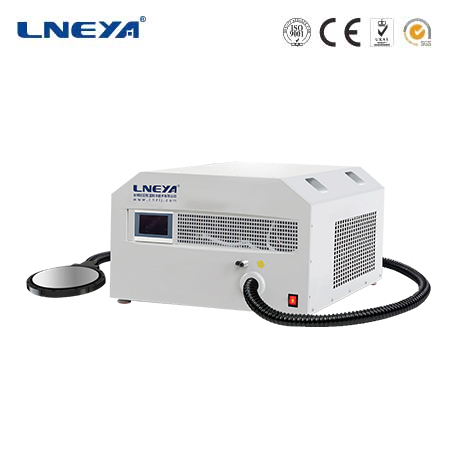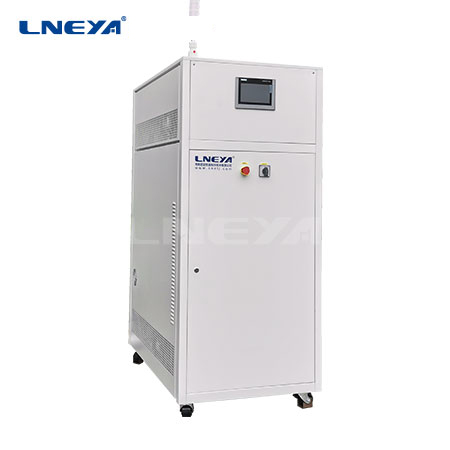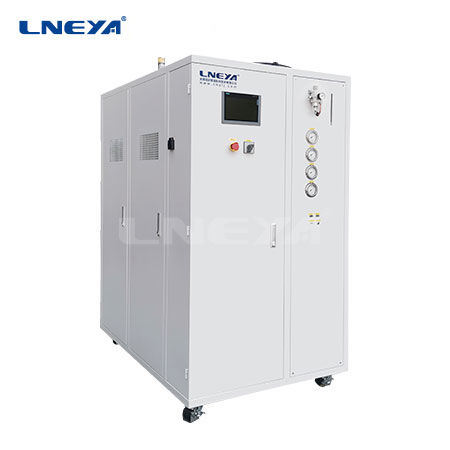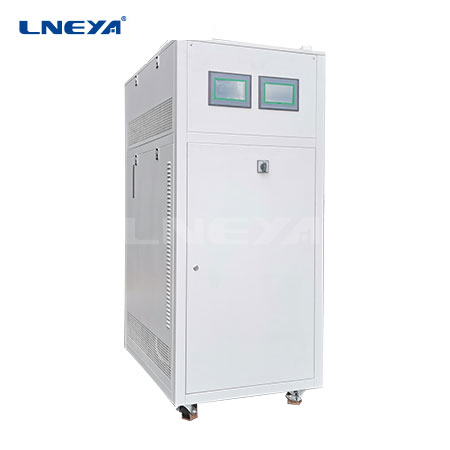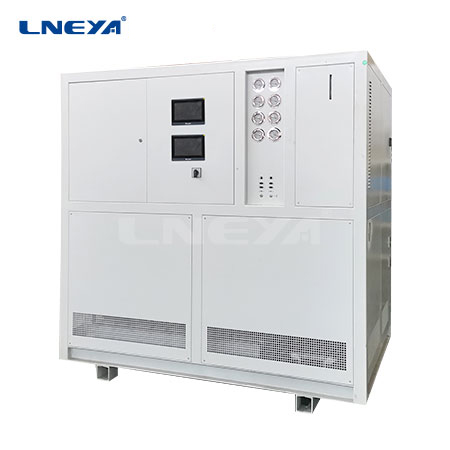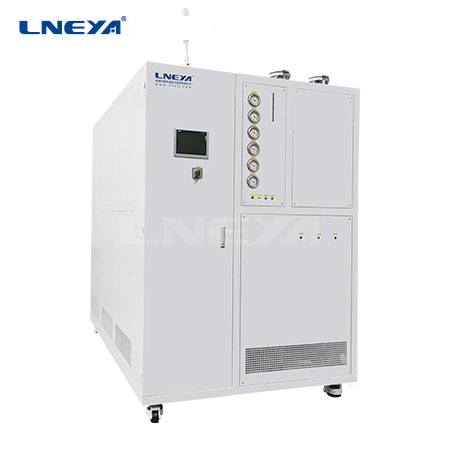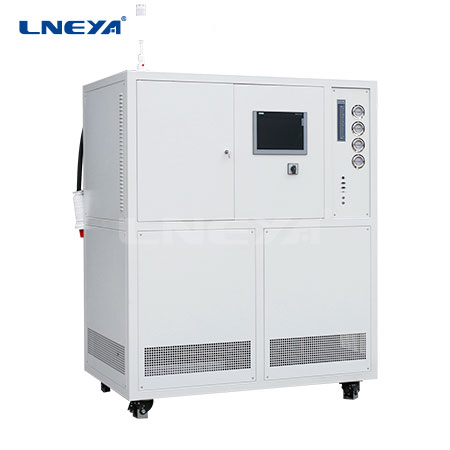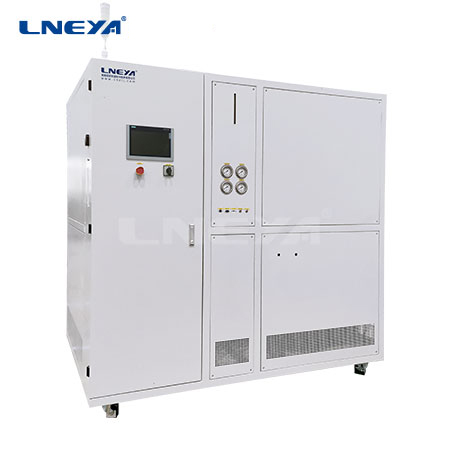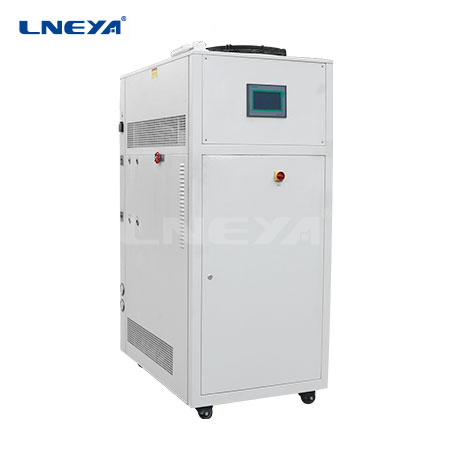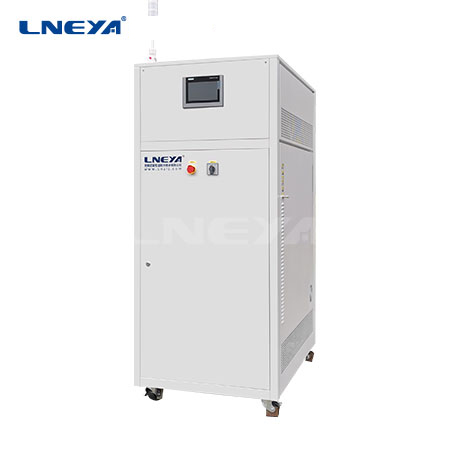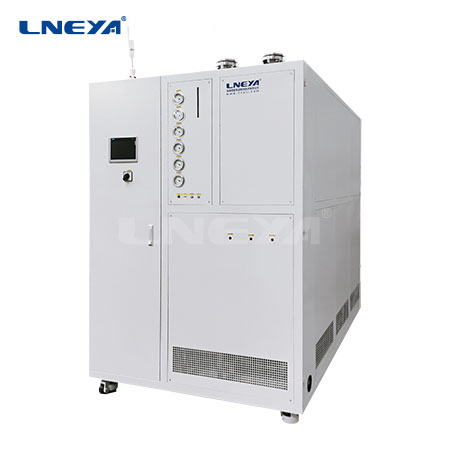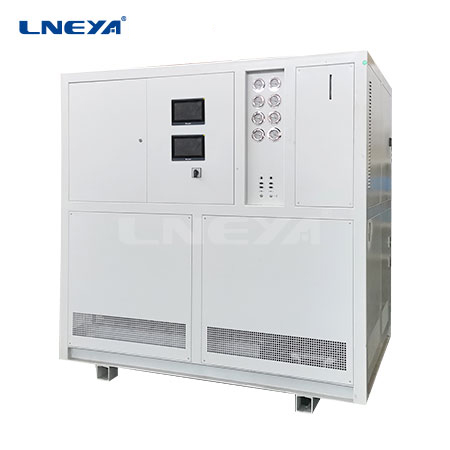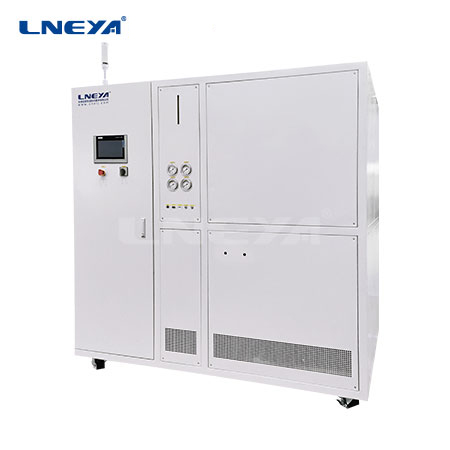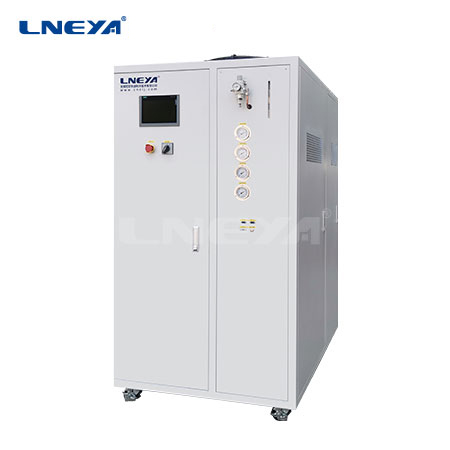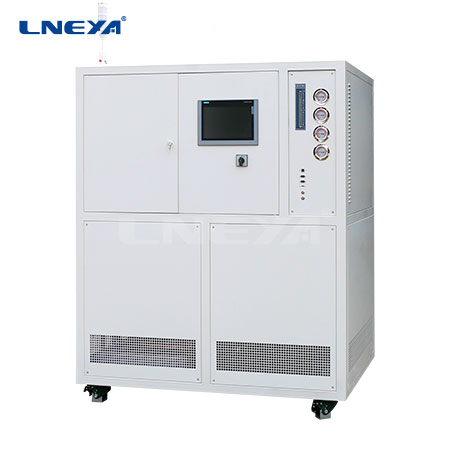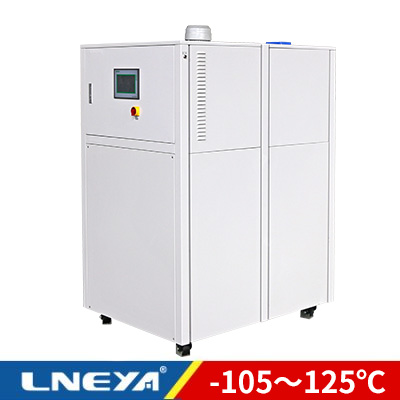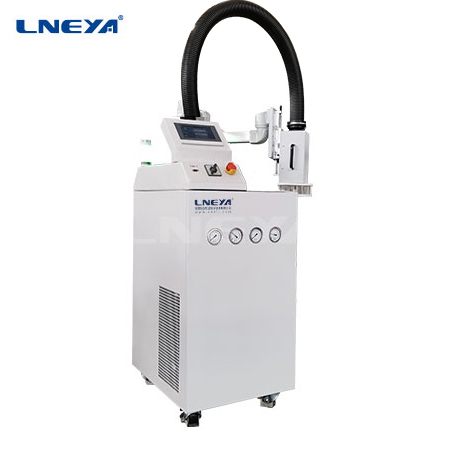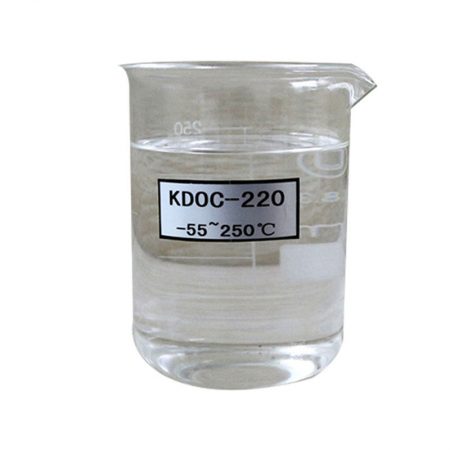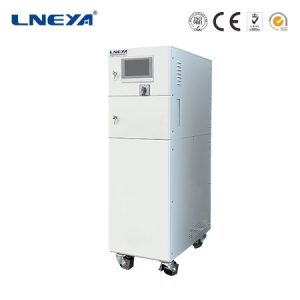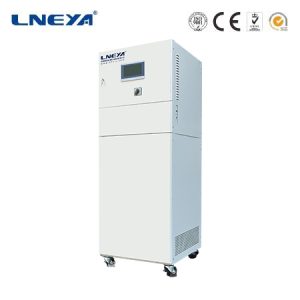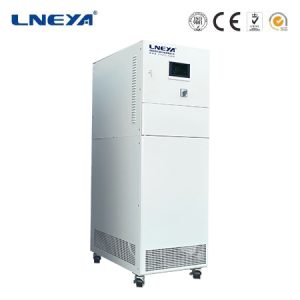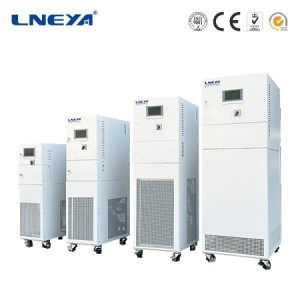Process Cooling Water System
Contattateci oggi stesso per la soluzione di controllo della temperatura perfetta
Process cooling water system is one of the circulation systems used in the fields of industrial production, energy and construction. It is usually used to transfer heat from high-temperature or high-energy equipment to cooling water and dissipate heat to the air or underground.
The process cooling water system consists of multiple components, including water circulation pumps, cooling towers, cooling water pipes and coolers. The water circulation pump draws the cooling water from the cooling tower, circulates it in the equipment and returns it to the cooling tower for heat dissipation. Cooling towers spray hot water into the air flow from the cooling area, causing the water to be cooled and returned to the system. Cooling water pipes carry cooling water to different equipment and return hot water to the cooling tower. A cooler is a device that transfers hot water to cooling water.
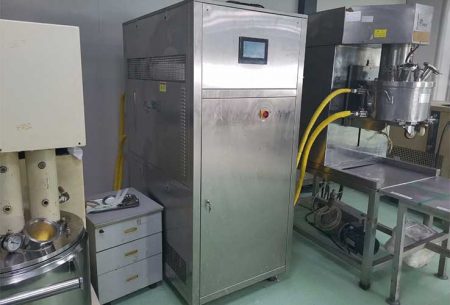
Comparison of open and closed process cooling water systems
The process cooling water system is divided into two types: open system and closed system. The closed system mainly consists of water pump, plate exchanger, process equipment, pipe network and constant pressure equipment. The open system mainly consists of water tank, water pump, plate exchanger, process equipment. Equipment and pipe network.
The same points between open and closed systems:
①All are indirect heat transfer;
② Process equipment has relatively high requirements for water quality, so softened water is required for system water replenishment (secondary reverse osmosis water from a pure water station can be used as system water replenishment, without adding a water treatment device);
③The system refrigerant is all refrigerator cooling water.
The differences between open systems and closed systems:
① The cooling water in the open system is partially in contact with the atmosphere at the water tank;
② The open system cannot utilize the system return water pressure and is not energy-saving enough.
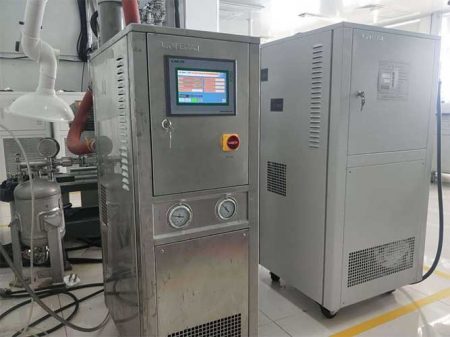
Selection of process cooling water system mode
The mode of process cooling water system is divided into open system and closed system. How to choose open system and closed system during the design process should be based on the following situations:
① When the height difference between the highest point of the process equipment and the water pump plate replacement equipment is relatively large (height difference exceeds 10m), it is recommended to use a closed system, so that the residual pressure and static head of the equipment can be fully utilized;
② When the water supply pressure of process equipment is very high but the pressure difference of the equipment is not large, it is recommended to use a closed system, so that the residual pressure of the pipe network can be used to reduce the water pump head and save energy;
③ When the plant process equipment is put into production in phases or in batches or when the equipment update and adjustment are relatively simple, taking into account the system debugging ability, it is recommended to use an open system, which can speed up the system debugging and operation. At the same time, due to the addition of a water tank, the system retains more water and the cold source When interrupted, it has certain accident buffering capabilities.
④ From the perspective of energy saving, the use of a closed system can greatly reduce the head of the process cooling water supply circulation pump. On the one hand, it can save the initial investment, on the other hand, it can save energy and reduce operating costs.
⑤ When the cooling water temperature of the equipment can be directly cooled by a cooling tower on the hottest days or the owner requires a small investment, an open system can be used. When the equipment cooling water inlet temperature cannot be met by an open cooling tower, a closed system is used, using chilled water as the refrigerant.
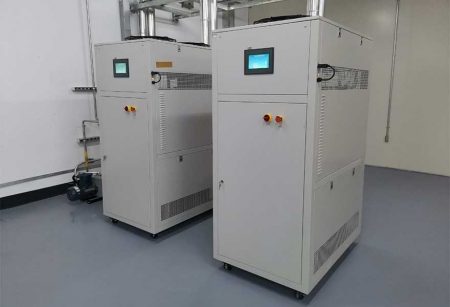
In conclusion
Process cooling water system is widely used in semiconductor, microelectronics and other industries. In order to achieve good benefits in improving the stability of system engineering, reducing engineering costs and saving energy, during the system engineering design process, users need to choose based on actual usage conditions. ideal operating mode.
Forniamo progettazione e produzione di sistemi di controllo della temperatura completi. Da modelli standard a prodotti completi e personalizzati fino a 900 tonnellate. Siamo specializzati nell'assistenza ai clienti e ci dedichiamo ad aiutare ogni cliente ad avere il sistema di controllo della temperatura ottimale per le sue esigenze specifiche.
Forniamo soluzioni personalizzate non standard. Sono disponibili sia chiller a raffreddamento singolo che unità combinate di raffreddamento e riscaldamento.
E-mail: info@lneya.com ID WeChat: +8615251628237 WhatsApp: +86 17851209193

Refrigeratori di raffreddamento

Refrigeratori a ricircolo / Circolatore refrigerato
Il refrigeratore può essere ampiamente utilizzato in vari settori industriali e laboratori e supporta la progettazione personalizzata.
| Intervallo di temperatura | Serie -25°C ~ +30°C | Serie -45°C ~ +30°C | Serie -60°C ~ -20°C | Serie -80°C ~ -20°C | Serie -120°C ~ -70°C | ||||
| Capacità di raffreddamento | 0,8 ~ 30kW | 0,75 ~ 12kW | 0,4 ~ 6kW | 0,2 ~ 6kW | 0,3 ~ 5kW | ||||
| Nota: qualsiasi intervallo di temperatura da -150℃ a +350℃ e qualsiasi capacità di raffreddamento possono essere personalizzati. | |||||||||
 Refrigeratori d'acqua / Piccoli refrigeratori
Refrigeratori d'acqua / Piccoli refrigeratori
Il refrigeratore può essere ampiamente utilizzato in vari settori industriali e laboratori e supporta la progettazione personalizzata.
| Intervallo di temperatura | -18°C ~ +30°C | Serie +5°C ~ +35°C | |||||||
| Capacità di raffreddamento | 0,35 ~ 0,9 kW | 1,8 ~ 50kW | |||||||
| Nota: qualsiasi intervallo di temperatura da -150℃ a +350℃ e qualsiasi capacità di raffreddamento possono essere personalizzati. | |||||||||

Refrigeratori a bassa temperatura
Siamo specializzati nella produzione di refrigeratori a bassa temperatura con un range di controllo della temperatura fino a -150°C, in grado di soddisfare le esigenze di refrigerazione di diversi settori industriali.
| Intervallo di temperatura | Serie -25°C ~ -5°C | Serie -45°C ~ -10°C | Serie -60°C ~ -10°C | Serie -80°C ~ -30°C | Serie -110°C ~ -50°C | Serie -150°C ~ -110°C | |||
| Capacità di raffreddamento | 12 ~ 360kW | 6 ~ 180kW | 6 ~ 180kW | 4 ~ 180kW | 2 ~ 120kW | 2,5 ~ 11kW | |||
| Nota: qualsiasi intervallo di temperatura da -150℃ a +350℃ e qualsiasi capacità di raffreddamento possono essere personalizzati. | |||||||||

Refrigeratori ad alta temperatura
Il refrigeratore può essere ampiamente utilizzato in vari settori industriali e laboratori e supporta la progettazione personalizzata.
| Intervallo di temperatura | +5°C ~ +40°C | -25°C ~ +40°C | -45°C ~ +40°C | -80°C ~ +80°C | -100°C ~ +80°C | ||||
| Capacità di raffreddamento | 6 ~ 40kW | 2 ~ 15kW | 1 ~ 8kW | 0,6 ~ 3kW | 1,5 ~ 3kW | ||||
| Nota: qualsiasi intervallo di temperatura da -150℃ a +350℃ e qualsiasi capacità di raffreddamento possono essere personalizzati. | |||||||||
Refrigeratori per il raffreddamento e il riscaldamento

Refrigeratori per il raffreddamento e il riscaldamento
Intervallo di controllo della temperatura: da -120°C a +350°C
termostato di raffreddamento e riscaldamento, ampiamente utilizzato in vari settori industriali.
| Intervallo di temperatura | Serie -10 ~ +150°C | Serie -25 ~ +200°C | Serie -25 ~ +300°C | Serie -45 ~ +250°C | Serie -45 ~ +300°C | Serie -60 ~ +250°C | Serie -60 ~ +300°C | Serie -70 ~ +250°C | Serie -80 ~ +250°C | Serie -90 ~ +250°C | Serie -100 ~ +100°C | ||
| Capacità di raffreddamento | 1,5 ~ 15kW | 1 ~ 200kW | 1 ~ 200kW | 0,45 ~ 200kW | 0,9 ~ 25kW | 0,25 ~ 60kW | 0,75 ~ 25kW | 0,4 ~ 15kW | 0,3 ~ 80kW | 0,2 ~ 80kW | 0,45 ~ 80kW | ||
| Nota: qualsiasi intervallo di temperatura da -150℃ a +350℃ e qualsiasi capacità di raffreddamento possono essere personalizzati. | |||||||||||||

Riscaldatori a ricircolo Refrigeratori
Intervallo di controllo della temperatura: da -45°C a +250°C
| Intervallo di temperatura | Serie -25°C ~ +200°C | Serie -45°C ~ +250°C | |||||||
| Capacità di raffreddamento | 1 ~ 15kW | 0,25 ~ 15kW | |||||||
| Nota: qualsiasi intervallo di temperatura da -150℃ a +350℃ e qualsiasi capacità di raffreddamento possono essere personalizzati. | |||||||||
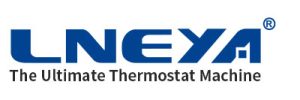 LNEYA
LNEYA
 简体中文
简体中文










